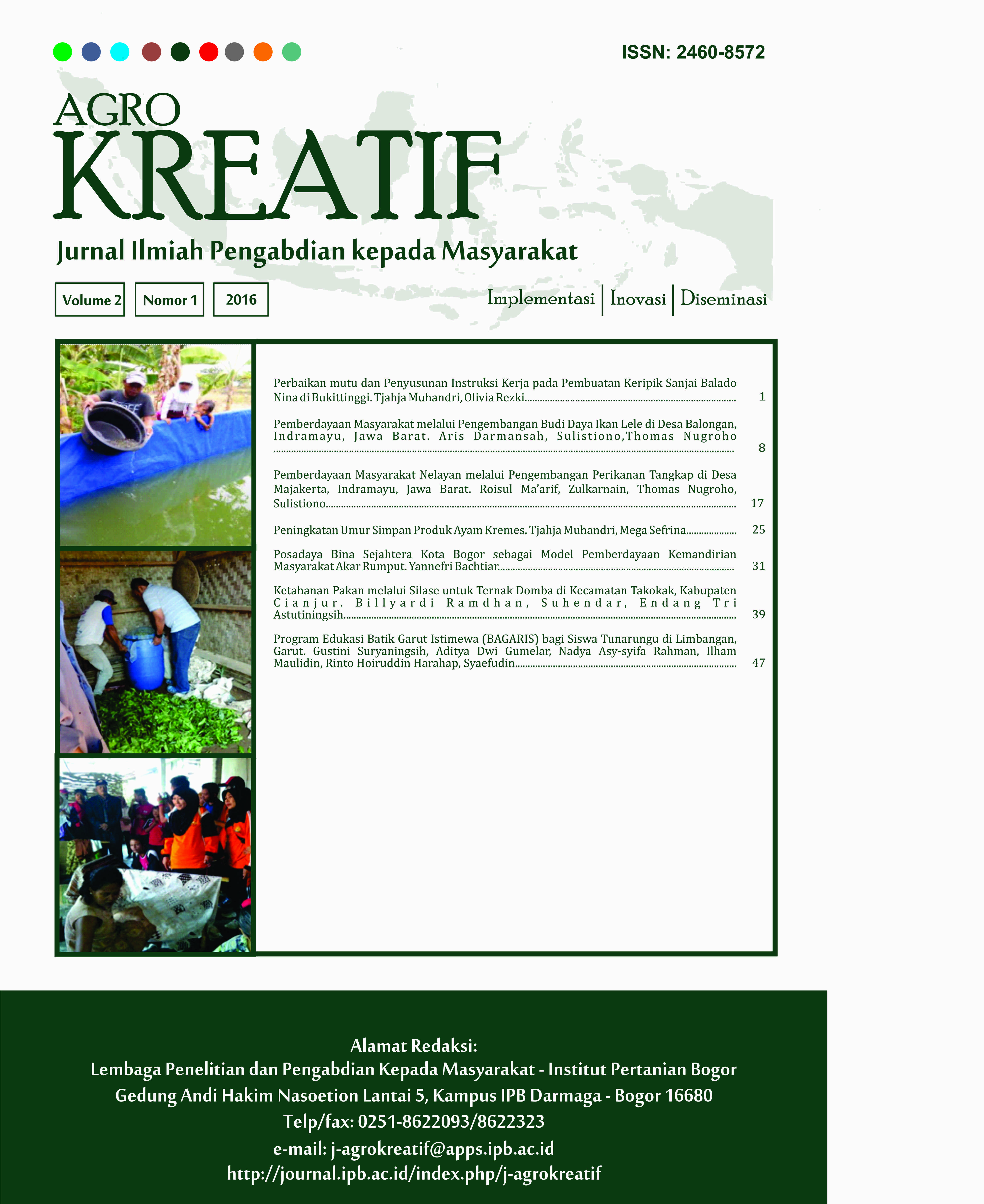Posdaya Bina Sejahtera Kota Bogor sebagai Model Pemberdayaan Kemandirian Masyarakat Akar Rumput
Abstract
As a part of the concern to the grass root society, Bogor Agricultural University had been established family empowerment station (Posdaya) the model of community development since 2007. The purpose of Posdaya is to increase the capacity of grass root society to fulfil their need of live by their social capital development. For this purposes the action research was done to explore the appropriate strategy for social facilitation approach in developing their capacity in education, health, economy, and environment. Until 2010, there was 106 Posdaya at Bogor, Cianjur, and Sukabumi area. Posdaya Bina Sejahtera Kelurahan Pasir Mulya Bogor was one of a good example in developing Posdaya that has been established at 8th May 2007. In the initiative phase, several activities had been done, included survey of the potency of community development, mini-workshop, meeting, training, coordinating, and empowering. In the implementation phase, several result had been yielded included organizational establishment, action plan, readiness of cadre, core activities development in education (pre-school and moving library), health services (post health services, geriatric health services, children family planning), economy (syari’ah microfinance institutionalization, small business for food production, and handy-craft), environment (environmental based agribusiness and household waste management). Action research concluded that Posdaya was empowerment strategy in developing grass root society by bottom up program on their self-reliance capacity in using local and potential resources. Posdaya was the institutionalization of social capital that relevant to the need of grass root society in developing education, health, economy, and environment. By these approach Posdaya considered as a proved model of community development in developing both physical and non physical of the society.Downloads
References
Adi IR. 2001. Pemberdayaan, Pengembangan Masyarakat, dan Intervensi Komunitas. Jakarta (ID): LPFE Universitas Indonesia.
Brokensha D, and Hodge P. 1969. Community Development: an Interpretation. San Fransisco (US): Chandler Publishing Company.
Dubois B, Miley KK. 1992. Social Work An Empowering Profession. Boston (US): Allyn and Bacon.
Gunardi, Agung SS, Purwaningsih N, Lubis DP. 2003. Pengantar Pengembangan Masyarakat. Bogor (ID). Institut Pertanian Bogor.
Hikmat H. 2004. Strategi Pemberdayaan Masyarakat. Bandung (ID): Humaniora Utama.
Ife J. 2002. Community Development : Community Based Alternatives in an Age of Globalizations. Australia (AT): Pearson Education.
Muljono P, Bakhtiar Y, Mintarti, Dewi P. 2014. 101 Cara Mengenal Posdaya. Bogor (ID): IPB Press.
Sumardjo, Saharuddin. 2004. Metode-Metode Partisipatif dalam Pengembangan Masyarakat. Bogor (ID): Departemen Ilmu-Ilmu Sosial dan Ekonomi Fakultas Pertanian dan Program Pasca Sarjana IPB.
Suyono H, Haryanto R. 2007. Buku Pedoman Pembentukan dan Pengembangan Pos Pemberdayaan Keluarga (Posdaya). Jakarta (ID): Yayasan Dana Sejahtera Mandiri.
Tony F. 2014. Pengembangan Masyarakat. Jakarta (ID): Yayasan Pustaka Obor Indonesia X.
This work is licensed under a Creative Commons Attribution-NonCommercial 4.0 International License.



















